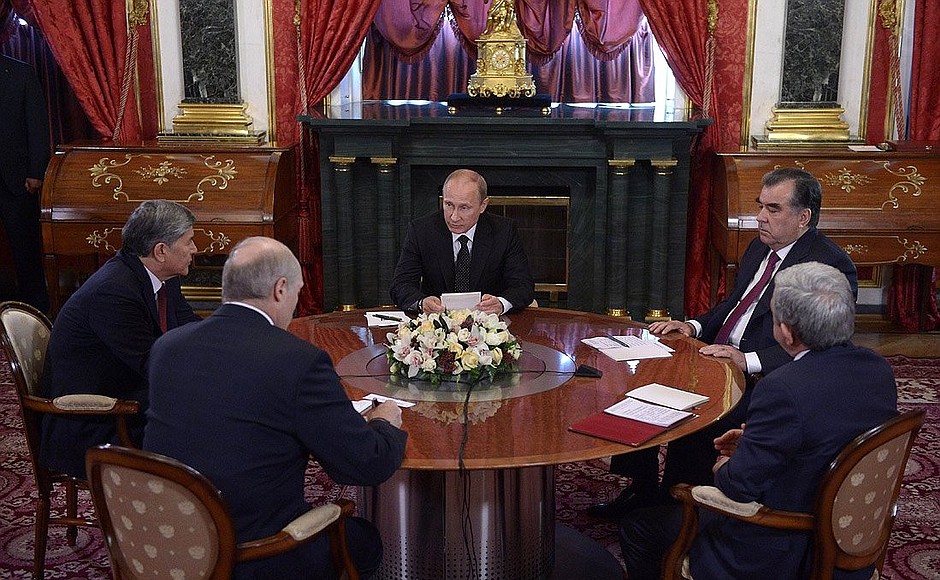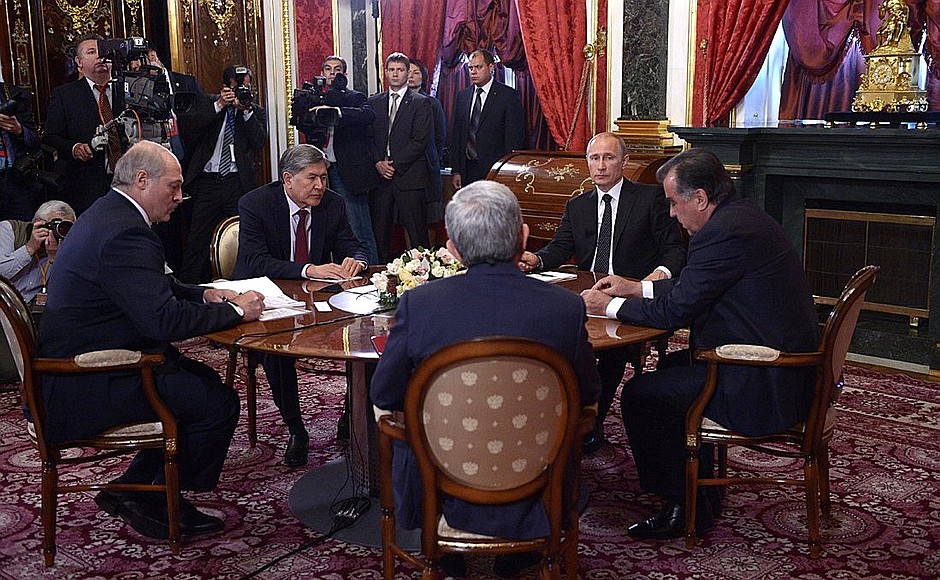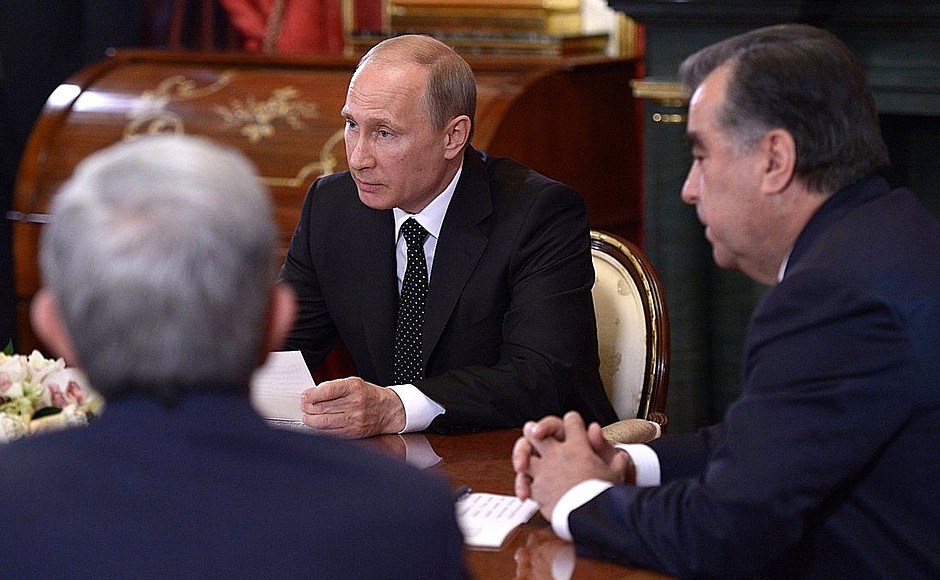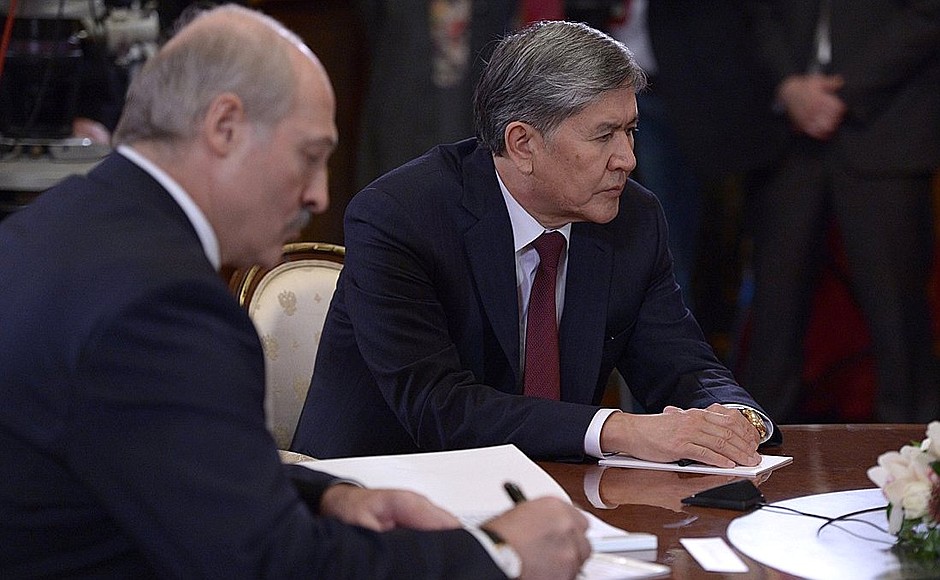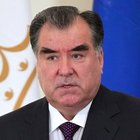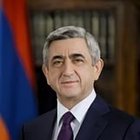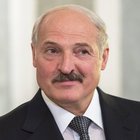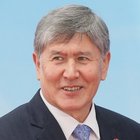Vladimir Putin had a meeting with President of Belarus Alexander Lukashenko, President of Armenia Serzh Sargsyan, President of Tajikistan Emomali Rahmon and President of Kyrgyzstan Almazbek Atambayev.
President of Russia Vladimir Putin: Good afternoon, colleagues. Welcome to the Moscow Kremlin.
We are meeting today on the eve of Victory Day – a very special holiday for all of us.
In the years of the Great Patriotic War, our fathers and grandfathers together routed Nazism — an evil and merciless foe. They defended their homeland, maintained its sovereignty and independence and freed Europe from slavery and violence. We paid dearly for the victory of May 1945, and we will always cherish the memory of those who gave their lives for their country’s freedom, we will cherish their heroism, unity and solidarity in the struggle against a common enemy. All this remains a powerful factor uniting all the peoples of the former USSR.
We have just observed a training session to test the administration of the Armed Forces of Russia. You all had the opportunity to witness the high level of readiness and action cohesion of the country’s strategic offensive and defensive forces. I would like to stress that our army is a reliable guarantor of the sovereignty and territorial integrity of this country and plays a significant role in maintaining global and regional security.
There are still many threats and challenges in the world today. As you may know, in Europe, militant nationalism is raising its head here and there – the one that once led to the appearance of the Nazi ideology. I will not dwell on each of the hotspots separately – we all know where the danger is. Incidentally, the situation in our neighbouring brotherly Ukraine is an example of the disaster and loss such an irresponsible policy can bring about. Hundreds of thousands of people have lost the possibility of living in peace and prosperity.
Naturally, we are all concerned about the developments in Ukraine. As you may know, yesterday I had productive talks with President of the Swiss Confederation and OSCE Chairperson-in-Office Didier Burkhalter. We intend to act within the framework of these agreements and we have established specific measures to activate OSCE’s efforts to de-escalate tensions in Ukraine. Primarily this needs to be done through establishing a direct and equal dialogue between the current authorities in Kiev and representatives of the southeastern regions of Ukraine.
Today we will have an informal exchange of views on the situation in that country and will touch upon burning issues of cooperation between our countries and the development of integration in Eurasia. As for the CSTO, we shall first of all consider what we need to do jointly to maintain the unconditional security of our nations.
Thank you.
President of Tajikistan Emomali Rahmon: Good afternoon, colleagues,
First I would like to congratulate you all on the coming holiday and to express gratitude to Mr Putin for inviting us to Moscow on the eve of another anniversary of our shared holiday – the Day of Victory in the Great Patriotic War.
We see this informal exchange on pressing issues in our multifaceted cooperation as a continuation of our regular dialogue established within the framework of the Collective Security Treaty Organisation.
Given the current international situation, it is ever more obvious that the strategic choice made by our states in favour of collective security was right and reasonable.
We cannot but be concerned by the fact that today international relations are becoming ever more uncertain. Cooperation between the CSTO member-states in overcoming new threats has become a new item on our agenda. Thus, we now have a new issue – counteracting cyber threats.
The Ukrainian crisis, just as the situation in the Middle East and North Africa and in the regions adjacent to the CSTO clearly has a negative impact on both regional and global security.
We are deeply concerned about the developments in this post-Soviet state. This course of events is familiar. At an early stage of its independent statehood in the early 1990s Tajikistan went through internal political confrontation and an armed conflict, which led to the most devastating social, economic and humanitarian consequences for the country. These events in our nation’s tragic recent history – the severe civil war in Tajikistan that took the lives of over 157,000 people and caused almost $10 billion worth of damage – remind us how fragile our world is, and that we need strong political will and a great effort to consolidate society and achieve mutual accord and peace in the country.
In our view today we should jointly analyse and give a fair assessment of the developments in Ukraine. We should not allow armed confrontation and armed resistance. We support a peaceful solution to the crisis in Ukraine by means of dialogue and negotiations.
Alongside new threats and challenges and the persistent instability in countries that neighbour on the CSTO region, the situation in Afghanistan remains the biggest threat to countries in the region, and the forecast is not optimistic.
The withdrawal of International Security Assistance Force from Afghanistan in the course of 2014 may have a negative impact on the situation in that country, increase the threat of destabilisation, as well as that of drug trafficking and terrorism spreading from the Afghan territory. We need to be prepared.
As you may remember, we had a very thorough discussion of the Afghan issue in September of last year at the CSTO summit in Sochi. There we decided to fortify the border between Tajikistan and Afghanistan. In line with that resolution, the first batch of military technology was to be provided by the CSTO within 3 months of the Sochi summit. Unfortunately, this has not been done.
Presidential elections already took place in Afghanistan. I believe the second round will be held on May 24–25. I would like to say to my colleagues here that back then, we made a very serious decision and we should act on it.
The situation in Central Asia within the CSTO remains stable, but we are interested in maintaining this stability through joint efforts. To achieve this we need to take effective and coordinated action to counteract these threats to our security.
Thank you for your attention.
President of Armenia Serzh Sargsyan: Colleagues, I will also begin by expressing my sincere gratitude to the President of Russia for inviting us to visit Moscow on the eve of a holiday that we all respect so much and which unites us: Victory Day.
We represent states whose people suffered the greatest losses in the Great Patriotic War and made a decisive input into achieving the Great Victory. And our common task lies in carefully preserving its legacy, doing everything possible so that the lessons of the Second World War unite our nations and peoples and serve to prevent new threats.
I am also grateful for the opportunity to discuss the most critical problems of common interest in an informal setting.
All our work at a bilateral level and through regional organisations, including the Collective Security Treaty Organisation, is aimed at increasing our nations’ defence capacity, combat readiness and the efficacy of the collective security system. This work is being carried out while taking into account the developments in the international situation.
I am confident that given the rapid changes we see at the global and regional levels, the issue of increasing coordination in member states’ actions on security issues, including in foreign policy, becomes exceedingly important. We have created the necessary mechanisms to do this within the CSTO. At the same time, Armenia feels it is absolutely necessary to align our positions on issues of greatest importance to CSTO member states when discussing them within international and regional organisations.
This approach was at the heart of our position when voting in a number of organisations after the events of August 2008. We clearly stated that, on the one hand, we were talking about our allied relations, but on the other hand, we were talking about our neighbouring nation, where we have a large community of several hundred thousand people, a nation through which about 75% of deliveries to Armenia pass.
The same thing happened when voting on the Ukrainian crisis in the UN and the Council of Europe. I feel we must firmly agree on coordinating our actions in foreign policy, because otherwise, it looks somewhat strange.
Armenia has clearly stated that we believe holding a referendum in Crimea is yet another example of implementing the right of the people to self-determination by free will. At the same time, we are extremely concerned by the increase in violence in Ukraine, including with regard to the events in Odessa, Slavyansk, Kramatorsk and other regions. This situation can not but worry us, in part because there are more than half a million Armenians living there. We deeply regret to note that these events have led to the loss of life. We strongly feel that the crisis must be resolved exclusively by peaceful means, through a broad dialogue, first and foremost within society itself, and through talks on the basis of the UN Charter and international law, on the basis of agreements reached in Geneva on April 17 of this year.
I expect that in this informal setting today, Mr Putin, you will brief us on your views of how the situation in Ukraine might develop. An analysis of the situation shows that ignoring fundamental principles of international law and putting dialogue in opposition to force and the repression of peoples’ rights to self-determination can lead to catastrophic consequences. In the future, we must continue to take joint measures aimed at minimising the risks for member states to ensure regional stability and security, based first and foremost on the key approved areas for military cooperation development through to 2020.
It is imperative to give the necessary attention to developing the Collective Rapid Reaction Force (CRRF), constantly staying aware of how to foster joint capabilities to counter modern threats and challenges. And here, the military exercises that are held on a regular basis are very important, including the ‘Illegal,’ ‘Channel’ and ‘Proxy’ operations, as well as snap inspections of troops’ combat readiness, their compatibility and mobility.
In this context, I would like to note that in September 2015, we plan to conduct the Indestructible Brotherhood 2015 military exercises of the CSTO peacekeeping forces, which, I want to assure you, will be held at the highest level.
We feel it is important to speed up the process of equipping the CRRF of the CSTO with modern arms and equipment and fully settle the issues of transporting military equipment and freight, as well as personnel, through other nations’ territory.
On July 1 and 2 of this year, the Yerevan International Strategic Forum on Security will be held jointly with the CSTO Secretariat; it will address the topic of integrating national and regional peacekeeping potentials into the global system of peacekeeping operations based on UN principles and standards. This is the first forum of its kind. I am asking my colleagues to support this initiative and instruct the member states’ corresponding agencies to ensure a high level of participation.
At the Sochi session of the Collective Security Council, we had a detailed discussion of the situation in Syria, addressing possible scenarios of how the situation in Afghanistan, the Middle East overall and in Syria in particular might develop. Right now, all this has become even more pronounced; I am referring to the externally pre-planned operation against the peaceful population of Kessab.
I would like to use this opportunity to thank the CSTO member states for their position on the Armenian-populated city of Kessab in Syria, as reflected in the joint statement adopted on April 3, 2014 by the CSTO member states’ foreign ministers. Here, it is important to note Russia’s position, which, as a permanent UN Security Council member, is working at various levels on settling the Syrian crisis, and the Russian Foreign Ministry has spoken out many times to state its support for Kessab Armenians.
Thank you, and thanks for your attention.
President of Belarus Alexander Lukashenko: Mr Putin, colleagues,
It is true that we gathered today for these celebratory days to congratulate each other and our peoples on this great Victory.
Today’s event – Victory Day – is different from the others (I remember this well, I experienced all of them) because we are talking about our victory with complete openness, without any fear or shame. This is very important. Various attempts have been made to belittle the role of the Soviet people in achieving this Victory, our role, that of our peoples. It even reached the point where we are being blamed for unleashing this terrible tragedy in the mid-20th century.
Because we have united, we are not ashamed to speak about our Victory; indeed, we emphasise the significance of this Victory. And the significance of the Victory lies in the fact that we saved world civilisation from death. The voices of our ill wishers have already been muffled. And this is good, because a human live is something that eventually ends; the young generations follow us, and they must clearly understand that this was our Victory; they must appreciate and believe in this Victory.
So today’s event, tomorrow’s events – the parade in Russia (we will all be watching it) and the events in our nations, in our capitals, the demonstrations and military parades in honour of Victory Day, are very important today.
I would also like to thank you, Mr Putin, for your congratulations to us and our peoples on this holiday. We are in solidarity with you and congratulate you and all the Russian people – the people who were at the centre of this Great Victory – on this great holiday.
This morning, we watched a training of the Russian Armed Forces, a military exercise. It is true that this kind of exercise was either unwanted or unaffordable during Soviet times, unaffordable even for the Soviet Union. It is costly and serves as very clear evidence that Russia is able to defend itself; it has the means to inflict an insufferable blow to those who want to warm their hands here, on Russian territory, and resolve their issues.
For Belarus, this military exercise is important for I – actually, all of us together – saw the complexes that exist in Belarus’ army in action, with the exception of the nuclear component, of course, and this is very important for us.
I also think, Mr Putin, since we are CSTO members, it means that in this respect, the Russian Federation’s zone of responsibility includes our nations too. So Russia’s military potential – god forbid of course – is the protection of our national interests as well. Therein lies our responsibility within the CSTO zone – solidarity with the Russian Federation and joint actions during military exercise. I want to stress again that we must be together if, god forbid, we need to face such a situation in real life.
Once, when we were discussing dangerous threats and developments on CSTO territory, when we were talking about Afghanistan and Syria (as the President of Armenia just said), we talked about Iraq, and all this seemed, at least to me in Belarus, a kind of distant training range, a faraway battle ground. It turns out that the world is so tight and dynamic that this infection is spreading quickly across the planet. And today, it is already at the threshold in Tajikistan, Armenia, Kyrgyzstan and Russia, and even Belarus is seeing these unacceptable developments. I am referring, of course, to Ukraine, which everyone mentioned today.
A lot has been said about it; positions have been expressed, but again, time changes our approaches considerably, our approaches and those of our states. Indeed, events have occurred recently in Ukraine that do not allow us to calmly stand back and watch what is happening there, especially the events in Odessa. This just leads us to bad parallels. I am already seeing those parallels on TV screens. We remember Khatyn, when several hundreds Belarusian villages were burned down by fascists following that very principle. So, such actions are unacceptable in any nation, and it would be especially unacceptable if we watch what is happening calmly. This concerns Russia and Belarus first and foremost. Let me stress again, we cannot watch this calmly, because our people are there, and naturally, they are crying for help; they want a response to such things. In other words, the situation is developing very quickly.
And what concerns me is the absolutely inadequate reaction on the part of our Western partners, if we can call them that. It is just a stunning reaction. In one situation, this is not allowed, and in another, things like that are acceptable and encouraged. These are the wrong approaches. It would have been a different matter if these were some diplomatic squabbles, but people are dying there. And the global community in this case must act together using specific criteria. And this set of evaluation criteria should be one and the same. There should be no double approaches.
The situation unfolding around us speaks to the fact that we had made the right decision in creating the Collective Security Treaty Organisation. Today, neither Belarus nor Tajikistan nor Kyrgyzstan or Armenia, not to mention Russia, can live calmly, assuming that all this is far away, somewhere else. It speaks to the fact that we made the right decision at the time. And the fact that we have gathered here today on the eve of the Great Victory – this is symbolic. Let everyone know it – it’s symbolic. And god forbid something happens, we must be ready to stand back-to-back, as people in the military say, and defend our sovereignty and independence.
This is especially important, Mr Putin, during a time when Americans and the West are essentially escalating the tensions, although for now (and this is also important and dangerous), it is done primarily through economic and financial means. They are trying to impose and are imposing concrete economic sanctions.
We have not used the main response measure in this situation. After all, our domestic capabilities increase several times when we unite, and we can overcome these sanctions. I am absolutely convinced of this. And we have absolutely nothing to fear. In this situation, we simply need to use the potential of any nation, and these potentials are complementary. If we are lacking something or if Russia lacks something, it can be found in other republics. If the republics lack something, it can be found in Russia or among our colleagues. So we need to think more about mobilising. And by mobilising our internal resources, we can overcome these repercussions, although they are not that dangerous. We have experienced them for more than a decade and we know what sanctions are, and what they can lead to. Especially since we are living on such a vast territory as the Soviet Union, and in essence, we are independent states – the heirs to that Soviet Union. We will withstand any situation. I do not want to make any assessments here. Mr Putin, you must know that we will stand with you, shoulder to shoulder. And I am not saying this because we have media present here – we simply have no other choice. We have no other choice but to stand together. If we stand alone, we will suffer the same fate as Ukraine.
Thank you.
Vladimir Putin: Thank you.
President of Kyrgyzstan Almazbek Atambayev: Mr Putin, thank you for the invitation.
I want to begin of course by congratulating you and everyone here on tomorrow’s Victory Day holiday. I think that everyone here would call this a sacred date. Our fathers fought together. Their generation fought hard for this victory, and I think it mattered not the slightest to them who was a Russian, Ukrainian, Belarusian, Kyrgyz, Tajik, Uzbek, Armenian or Georgian.
Our countries, our republics gained their independence, but I would like to hope that this has not become some kind of fetish. Of course we have a sacred duty to cherish and look after our independence, but at the same time we must also do all possible so that our borders are borders of friendship and fraternal feeling, and what we see today is a terrible tragedy of course, when fraternal peoples who fought together for victory start to become split and divided. What’s more, we all know full well that if divisions start taking ethnic lines, it is very difficult to stop the process, very difficult to stitch it back together, and very difficult to heal these wounds. We are following events with much sorrow in our hearts of course.
We watched the military exercises today and it was certainly an impressive sight. At the same time, I want to make an appeal. Mr Putin, Russia is a great country and we saw this with our own eyes today, but we also know that if, God forbid, a third world war breaks out, there will be no victors, and so I make this appeal for the leaders of the great powers to be highly responsible in what they do.
Naturally it pleased me that in this exercise scenario Russia did not launch the first strike but only made a counterstrike. This is already a good thing in itself. I hope though, that no one, no nuclear power, will ever launch the first strike, ever start a war, because we know that there will be no victors after a third world war. Watching these exercises, I suddenly recalled a song that was very popular during the Soviet years: Do the Russians want war? I think that neither the Russians nor other peoples want war. No one wants war. It is often the politicians who begin these messes in pursuit of aims unclear, in pursuit of their own ambitions perhaps.
I think that the priority task for any responsible politician should be to prevent war, prevent confrontation not only with neighbours, but above all inside one’s own country, prevent confrontation and division of people on the basis of whatever principles. In this respect, this was what we said to our Ukrainian brothers in our first statement. The ethnic question is a very sensitive issue and we must be very thorough and attentive in the way we address it and realise just what a great responsibility we have.
I want to say one thing. It’s said of course, that if you want peace you must prepare for war. I understand that this shield has played its part over these decades, deterring any country from starting a world war. Let us hope that this will never happen. We must keep alive the memory of our fathers who fought together. We should hold cultural events together that would remind us that we were once one country, fought side by side, and that nothing should divide us now.
Clearly, we should reflect carefully once more on all of this, all the more so as next year marks the 70th anniversary of our great Victory. I think that we should prepare well for this occasion and I hope that by the time this anniversary comes round we will have put any conflicts and misunderstandings between the fraternal peoples who together stopped the plague of fascism behind us and will put brotherhood and friendship in first place.
I wish everyone a happy holiday.
Vladimir Putin: Thank you.
Colleagues, friends,
I see that our views coincide completely on all the main issues and this makes me happy of course. It is especially pleasing to see this with the May 9 holiday coming up. Once again, I congratulate all of you and your countries’ peoples. We will draw on all that was best in the legacy of the past, and at the same time will look to the future. Happy Holiday!
